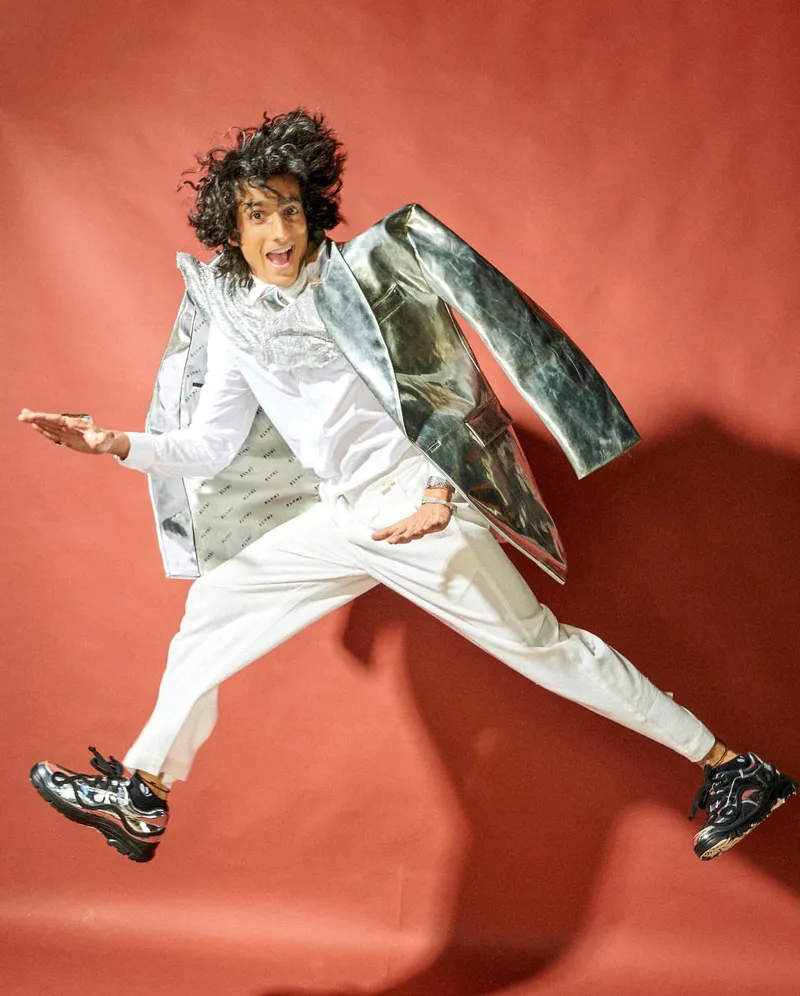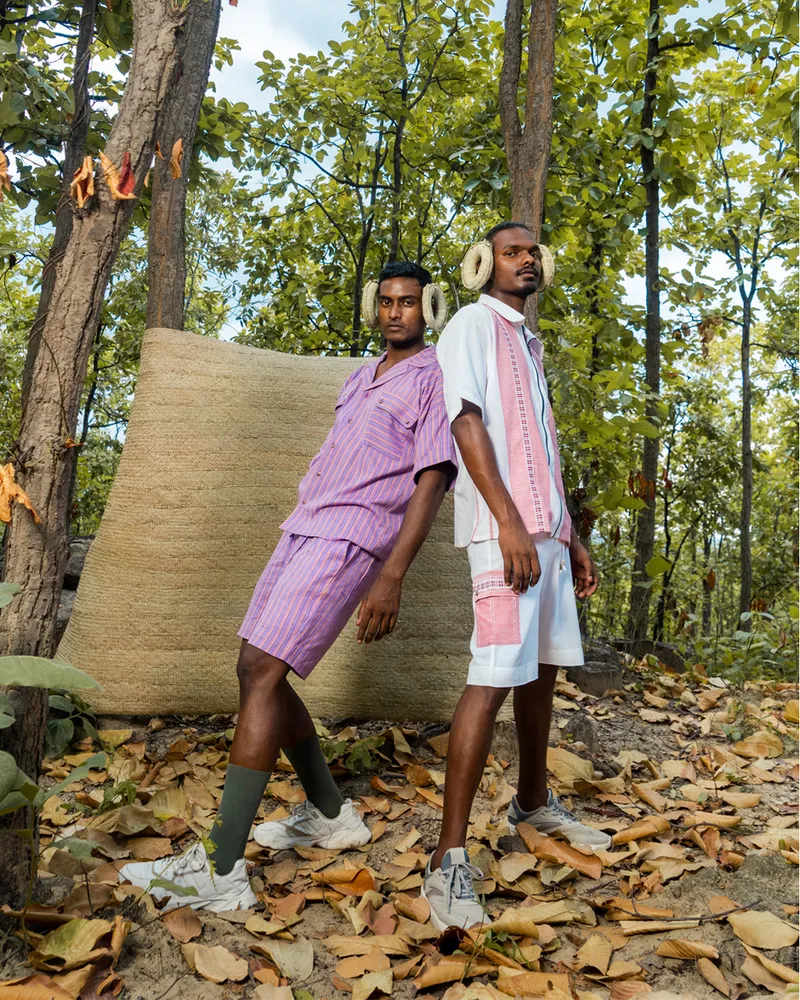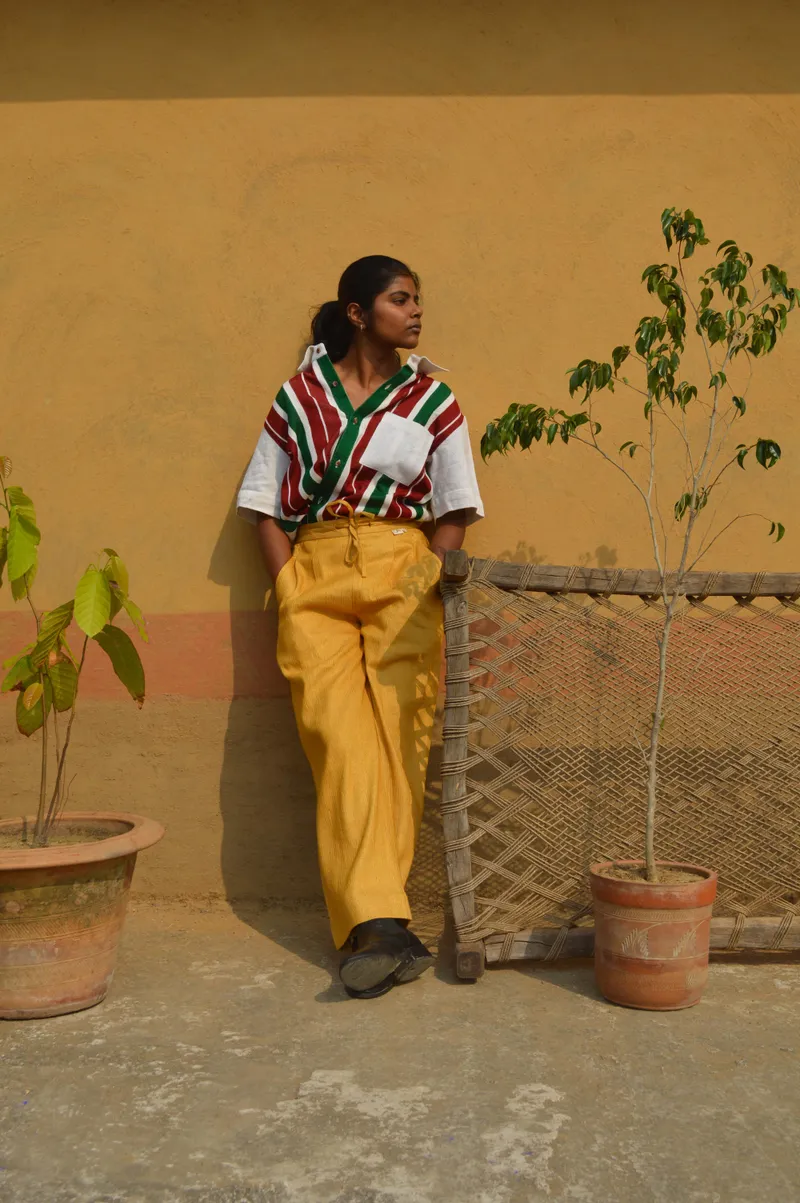Ranchi-based Johargram is rethinking Jharkhand’s rich textile history into sustainable modern streetwear
Founded by designer Ashish Styavrat Sahu, Johargram works with the weavers of Jharkhand to remake forgotten textiles into contemporary streetwear.
The 90s was perhaps known best for ushering in new waves of music and fashion—one among them was streetwear, a style influenced by the alleyways and streets and several subcultures like New York’s hip-hop movements and Los Angeles's surf culture.
Fast forward to 2023, the style is now updated with its fashion being crafted from high-grade material to resist against everyday wear and tear, incorporating unique designs and made in limited quantities to preserve the inclusiveness of each design.
While the style may have humble beginnings, streetwear fashion today comes with an expensive price tag and continues to be popular across the world. By some estimates, the global streetwear market was valued at $185 billion in 2019, making up about 10% of the entire global apparel and footwear market.

Actor and choreographer Shantanu Maheshwari in a Johargram pant
Aligned with these global trends, Indian designers and fashion houses have begun also begun its own experiments with streetwear. Brands like Capsul, Almost Gods, SIX5SIX Street, and ADK by Avishi Dayal Kalra are making noise in the Indian streetwear market. Taking the form a notch further is Ranchi-based Johargram.
Founded by NIFT Gandhinagar alumnus and fashion designer Ashish Satyavrat Sahu, Johargram makes sustainable streetwear using Jharkhand’s crafts and handlooms. Think co-ords sets made using munda tribal textile, or a trench coat made from Maaysaree (an indigenous saree presented by the groom’s mother to the bride and her family during wedding ceremonies in the tribal societies of Jharkhand), Johargram takes the traditional textile and marries it with new, high-street designs.

Ashish Satyavrat Sahu, Founder of Johargram
Sahu has already created an impressive list of clients, including the likes of cricketer Mahendra Singh Dhoni and Jharkhand’s Chief Minister Shri Hemand Soren.
The brand did its first private national exhibition at Homegrown Street Festival in Mumbai. On the sidelines,, YS Life caught up with Sahu to learn more about the brand.
Edited excerpts from the conversation:
YS Life (YSL): What does Johargram mean?
Ashish Satyavrat Sahu (AS): Johargram translates to ‘namaste’ (johar) and ‘village’ (gram), and Johargram welcomes the art and textiles of Jharkhand with the deepest respect.
YSL: What led to the inception of Johargram?
AS: I had a long desire to work with weavers (of Jharkhand) since I have such a deep affection for the people and culture of the state.
The fast-paced nature of my life then prevented me from turning to my ideas. But when the COVID-19 pandemic slowed life and, things started to set-up the brand in 2020.

Designs from the Patiya collection.The ensemble on the right is a zipper shirt with shorts made out of traditional saree of Jharkhand | Image: Johargram
YSL: What is fashion for you?
AS: Fashion is traditional yet contemporary.
YSL: How would you describe your creation? And what is the story that you are trying to weave with Johargram?
AS: Johargram serves the objective of team-play with Jharkhand's crafts and handlooms, which, in my opinion, has not yet been documented in discussions about mainstream fashion.
Besides that, we also look to increase the economic independence of the craftspeople involved with our brand, who otherwise typically rely on regional exhibitions and melas (or village fairs) as their livelihood.
YSL: How many collections have you launched so far? Which one is the closest to your heart, why?
AS: We have launched a total of six collections till date.
The Sakhua ( referring to the sal tree, the official state tree of Jharkhand) collection has always been close to our hearts since it helped us. As a result, we have drawn attention from the fashion industry and the FDCI (Fashion Design Council of India) for its COVID-19 Relief Fund for Jharkhand Simdega Weavers.

his ensemble consists of the shirt made out of Biru fabric which is traditionally a shawl | Image source: Johargram
YSL: Who are the artisans that you collaborate with?
AS: We work with the tribal weavers of Jharkhand who usually produce shawls, sarees, and gamcha.
YSL: Where do you seek inspiration for your designs?
AS: Mostly my surroundings and everyday life.
YSL: How do you plan to cater to millennials and GenZ?
AS: Since India is known for its extreme temperature, people here opt for comfortable yet fashionable clothing. Good old forgotten fabrics that are trendy and comfortable to wear are the future of fashion in India.
Johargram is recreating forgotten textiles into streetwear fashion. Because our designs are unique and people have never seen these textiles before, the youth are drawn to them.
YSL: What are you working on at the moment?
AS: We are currently working on textiles from the Jharkhand tribe known as the Oraon.
(Johargram’s designs start from Rs 1150–for a bucket cap, and can go up to Rs 13,500 for a trench coat)
Edited by Akanksha Sarma







